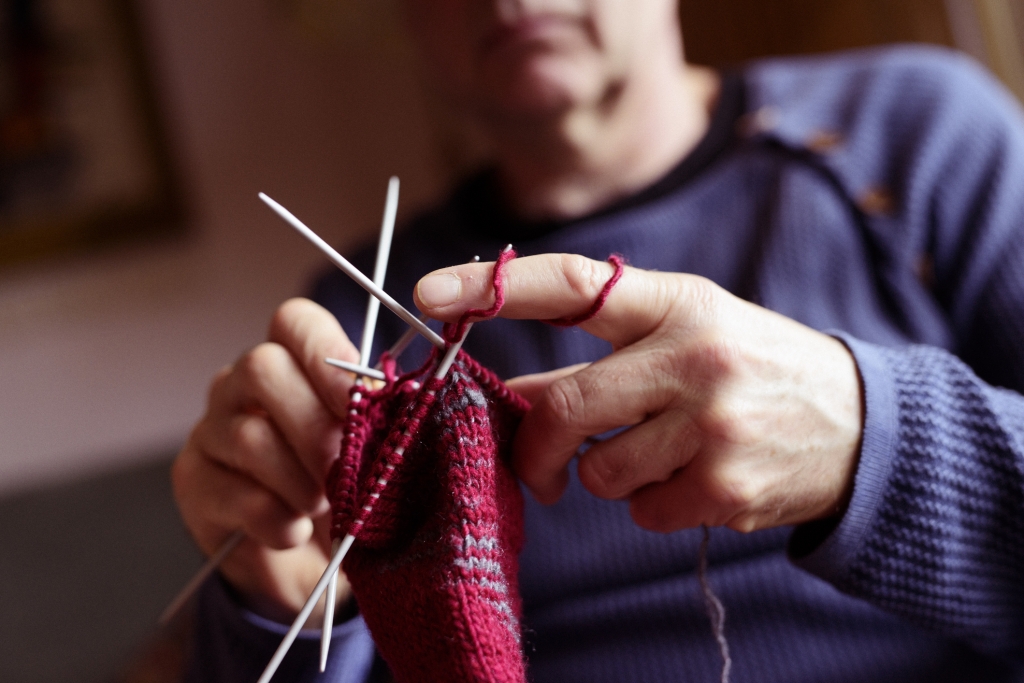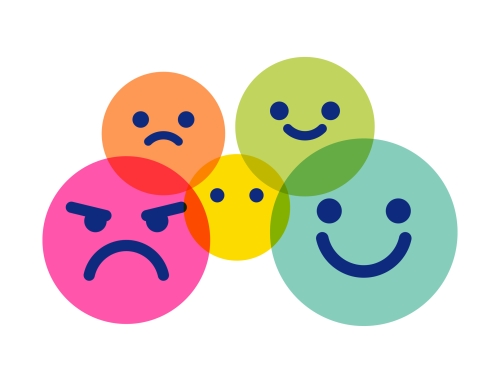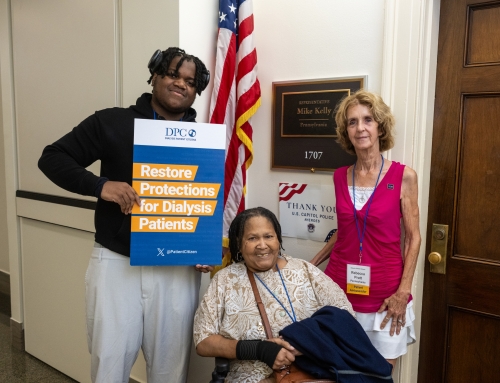By Rachel Fintzy Woods, MA, MFT
So many aspects of life are beyond our control. When the challenges of managing an illness such as chronic kidney disease are added to our plate, we can feel overwhelmed. Emotions such as anger, confusion, fear and sadness are common and natural, especially at the outset of our journey with illness. It can seem as if our world has been turned upside down.
Yet we do have some say in how we deal with the cards we’ve been dealt, including our medical condition and life itself. We alone are responsible for our actions and our attitudes—the word “responsibility” refers to our ability to respond, after all. We can expand our repertoire of coping skills. We can learn to manage our distressing feelings and to effectively deal with our day in, day out circumstances. As we do so, over time we can grow in patience, resilience and self-compassion—all of which will benefit us and those around us.
Choosing constructive coping mechanisms means that we’re taking care of our emotional and physical well-being. We accept our present situation and make healthy choices. We modify how we perceive our situation, our future and the world in ways that are not only bearable but also uplifting. We acknowledge and manage our situation rather than denying or attempting to flee reality.
Some ways in which we can effectively cope with troubling news or times:
- Educate yourself about the situation. Avoid jumping to conclusions. Stick with the facts. As compelling as it may feel to surf the Internet for information, much of what is out there is inaccurate or based on theories or opinions—some of which can scare the wits out of you. If you have questions about your medical condition, consult an expert such as your personal doctor and specialists to whom you’ve been referred, so you can get advice that’s tailored to your specific situation.
- Look at all your options. However daunting the situation, you probably have some reasonable alternatives. At first, just brainstorm and write down anything and everything that comes to mind—don’t edit yourself. Next, assess the pros and cons of the possibilities you’ve listed, then pare your list down to two or three options. From here, choose what seems best to you overall, and begin to break your action steps down into manageable chunks. You can always reevaluate your plan down the line, but for now, making a choice can settle down the mental whirlwind of indecision and second-guessing yourself.
- Practice good self-care. Moderate and healthy meals, as well as sufficient sleep and exercise several days a week (as you are able) will support your immune system, help to regulate your emotions and increase your ability to mentally focus. If we don’t take care of our bodies, we increase the chances of catching infections, becoming moody, or feeling cognitively dull or confused. Do your best to avoid short-term “fixes” such as too much alcohol, illegal drugs (or prescription drugs for unintended purposes), compulsive eating or excessive sleep—none of which help in the long run and may compound your problems.
- Prioritize social connections. Supportive friends and family can be important sources of comfort, feedback and distraction. None of us is an island. We all need at least one person to support and cheer us on. Also, catching up on what’s going on in other people’s lives can give you a better perspective of your own situation while strengthening your bond to others.

- Take time to pray and meditate. Whether you believe in the God of a specific religion, a benevolent force in the universe, nature, or some other Higher Power, a support group, or just that there’s something bigger and more powerful than you, take time to connect with this power. It can be a tremendous relief to remember that you needn’t (and can’t) have all the answers. Turn your problems over to this power, request that the right answers be revealed to you at the appropriate time, sit in the silence and have faith that you’ll be provided with the wisdom to do what’s necessary.
- Remember what’s most important to you. What are your priorities? Does how you spend your time reflect your values? For a week or so, keep track of your activities and how much time you devote to your pursuits. You may discover that you’ve wasted time doing things that really don’t matter to you. For instance, do you really need to spend hours perusing eBay, binge-watching TV or debating the latest political debacle? Remember that none of us gets more than 24 hours in a day. Use your time wisely.
- Balance your musts and your wants. Maintain a healthy balance between activities you must do and activities you want to do. We all need time to regain our strength and energy—thus the term recreation (re-creation). Only doing things you have to do can wear you down and lead to a sense of “what’s the point.” That being said, only doing things you want to do can be self-indulgent. Ideally, do at least one item from both lists every day.
- Maintain important routines. When we’re dealing with uncertainty and change, sticking with some familiar and honored routines can grant us some inner peace and a sense of control. If you enjoy reading the morning paper while sipping your tea, keep this up. If you eagerly anticipate taking an evening bath (if you do not have a catheter), continue this practice. Retaining a familiar schedule can be calming and centering. Build your dialysis routine into a schedule that includes some of your personal calming and “want to do” activities, even if it is doing them while on dialysis.
- Remember that some days will be better than others. We are not robots. Our feelings of physical, mental and emotional well-being ebb and flow. Pace yourself accordingly. On days when you’re particularly rundown or in a funk, don’t expect yourself to accomplish the same amount as you accomplished yesterday, when you were feeling better.
- Have safe people and places where you can express your feelings. Are there friends, family members, a therapist, a pastor or a support group where you feel comfortable sharing what you’re going through? Verbalizing your experience can enable you to come up with the best solutions for you and can offer you the opportunity to come to terms with what you’re feeling. Another option is to keep a journal. Even if you don’t review your writing, the process of handwriting, which takes some time, gives you the chance to sit with your experience. Sometimes ideas and realizations will pop into your mind that might have otherwise escaped you.
- Turn your attention to the physical. Doing something manually with your hands or body, like kneading bread, knitting, sewing on a button, cleaning out a closet or washing the dishes can be a good temporary distraction. Focusing on a physical activity can ground you in the present moment, instead of mulling over the future, regretting the past or living in a fantasy land.
- Help someone else. When we’re dealing with a personal crisis, it can be easy to become a bit self-involved. As an antidote, think about who you might be able to assist. It doesn’t have to be a huge gesture in order to lighten his/her load and brighten his/her day. Talking to others at the dialysis center, calling a friend or sending someone a card can also help to shift your energy away from your own concerns.
Ideally, experiment with these suggestions at a time when things are going smoothly in your life. This way, you’ll have familiarized yourself with the strategies before the next difficult time occurs.
However, even if you’re currently going through a rough patch and haven’t yet tried out these ideas, you can still implement them. We are all works in progress. The truth is that we never get to a place where life is just smooth sailing from that point on. And thank goodness, because if this were the case, we probably would eventually become bored and cease to grow. So you can look at your challenges as a golden opportunity to build your strength and wisdom.
Rachel Fintzy Woods is a licensed Marriage and Family Therapist in Santa Monica, California. Rachel counsels in the areas of relationships, the mind/body connection, emotion regulation, stress management, mindfulness, emotional eating, compulsive behaviors, self-compassion and effective self-care. Trained in both clinical psychology and theater arts, Rachel works with people to uncover and develop their unique creative gifts and find personal fulfillment. For 18 years, Rachel conducted clinical research studies at University of California, Los Angeles in the areas of mind/body medicine and the interaction of psychological well-being, social support, traumatic injury and substance use. You can read more about Rachel on her website: www.rachelfintzy.com.






